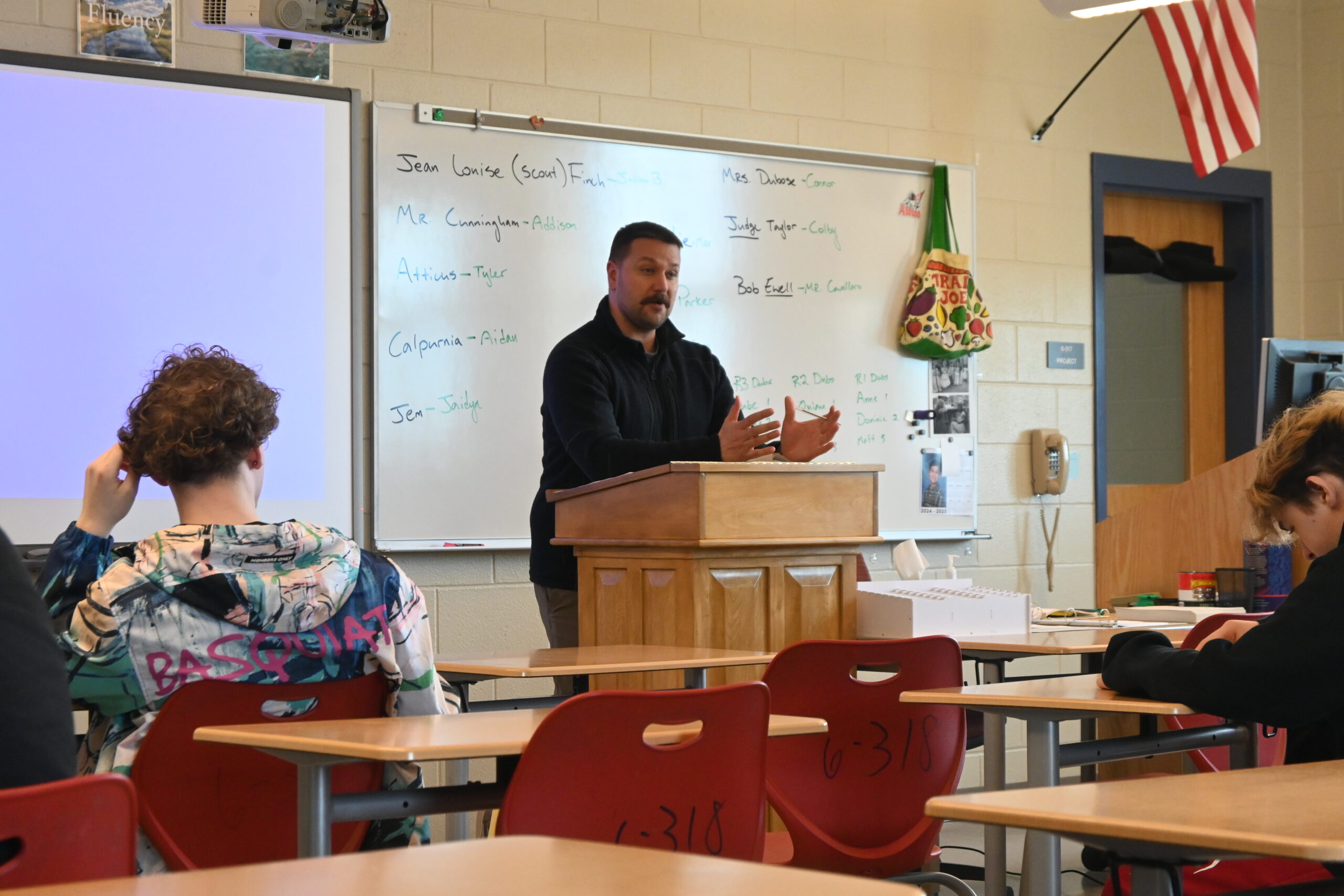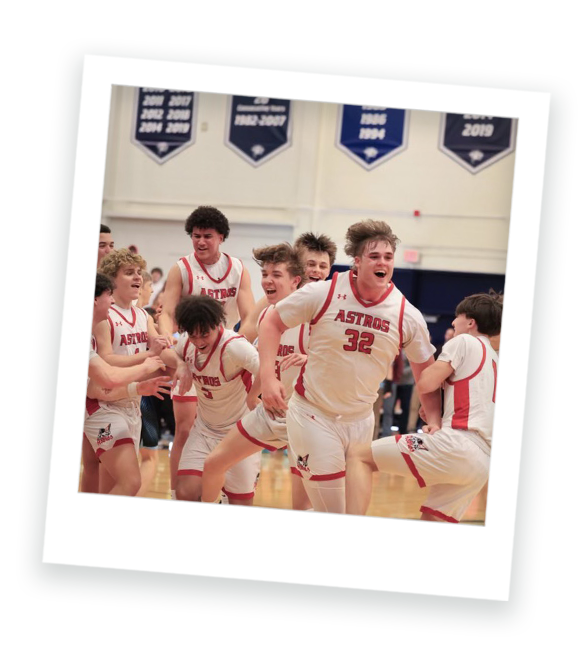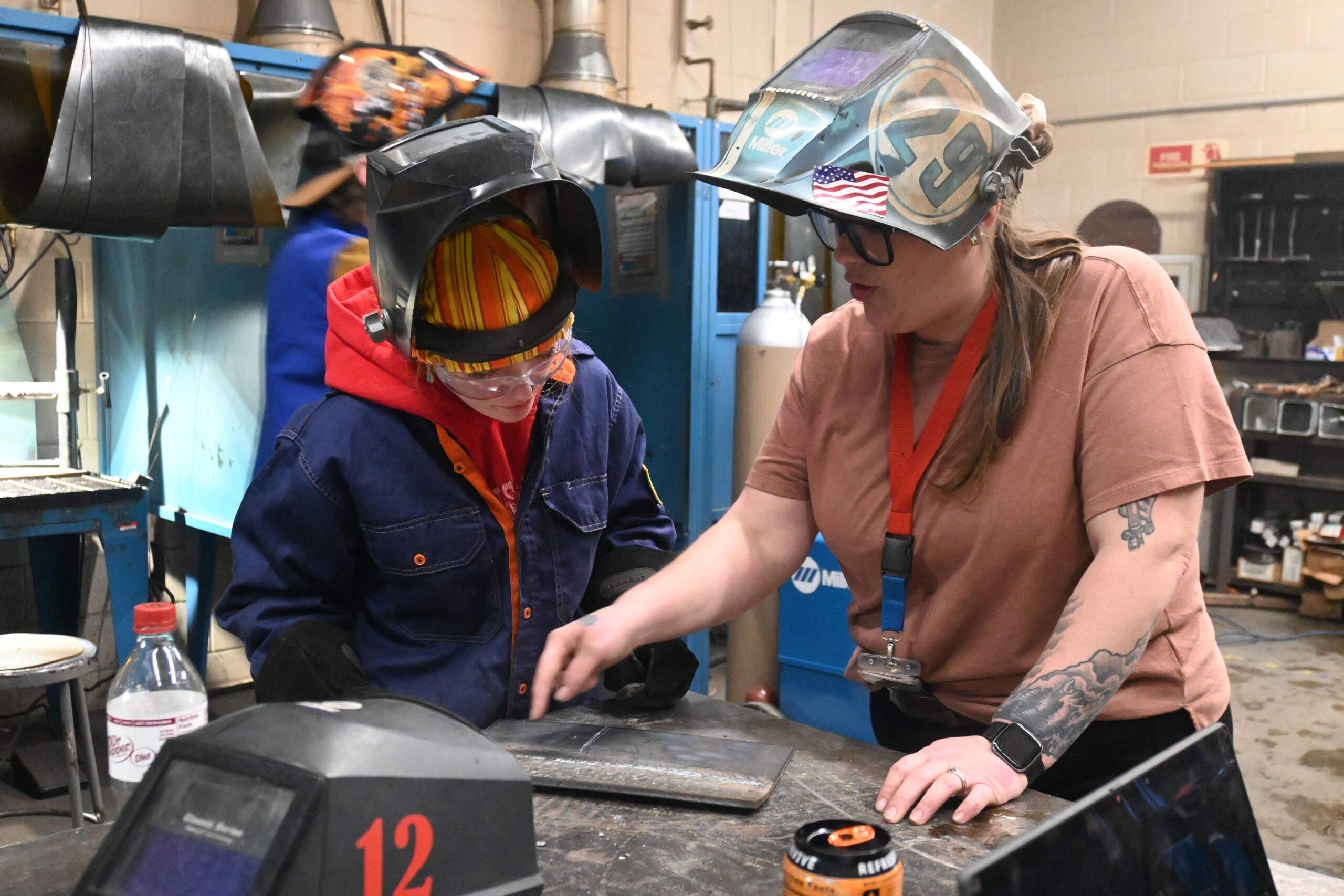Parker Cavallaro, English Teacher at Pinkerton Academy
A growth mindset — it’s the belief that an individual’s capacities and talents can be improved over time through effort and persistence.
Made popular by Carol Dweck, an American psychologist, a growth mindset emphasizes the direct role of effort, strategies, and feedback in personal and academic development. Dweck’s research suggests that individuals with a growth mindset are more likely to embrace challenges, persevere through difficulties, and view failures as opportunities to learn rather than a reflection of their abilities.
And for Parker Cavallaro — an English teacher here at Pinkerton Academy — it’s the foundation for how he approaches teaching in his classroom.
Making a difference
Growing up, Parker wasn’t quite sure about what he wanted to do after school. He knew he wanted to make a difference and a positive impact in the world somehow, but he wasn’t sure how to get there.
However, that changed when he met Reverend Arthur Hilson, a Navy veteran, pastor, teacher, and a celebrated leader in the local Portsmouth community. Parker reached out to Hilson and asked him for his advice, and Hilson encouraged him to consider teaching. Parker took Arthur’s words to heart and, soon after, pursued a teaching degree at the University of New Hampshire.
After finishing undergrad and grad school, Parker joined Pinkerton as a full-time English teacher in the fall of 2014.
Now, more than 10 years later, Parker can’t help but smile and reflect on all the opportunities Pinkerton has given him to help shape the next generation.
Growth in the teaching profession
After thinking back and reflecting on his first year as a full-time teacher at Pinkerton, Parker noted that his first year as a teacher could be summed up with one word — survival.
It took Parker a bit of time that first year to get in a groove and he felt the need to prove to himself — and his colleagues — that he could do it. Looking back, Parker can’t help but recognize his colleagues and mentors in the English department who helped him navigate all the challenges. From opening their doors to providing feedback on individual lessons, everyone at Pinkerton made Parker feel welcome.
Individual growth often stems from making mistakes and learning what works and what doesn’t. It’s what Parker learned that first year of teaching and a constant frame of mind for Parker and his colleagues today.
For example, in the last few years, Pinkerton has shifted from a prescriptive professional development model to a more autonomous model — encouraging teachers like Parker to explore their passions in the education space and entertain ideas for introducing innovation to their classrooms. As a teacher, Parker appreciates it because it allows him to continue growing in his field and not just talk about lifelong learning with his students, but walk the walk himself and embrace it.
A member of Pinkerton’s technology committee, this support and encouragement at the administration level makes it possible for Parker to explore tools like artificial intelligence (AI) and how AI can help solve common teaching pain points for him and his colleagues. Rather than shy away from the new technology, being open to trying new things and making mistakes provides a potential avenue for solutions and growth down the road.
Promoting a growth mindset with students
While technology and teaching strategies for ensuring students master core skills often change, one factor remains constant: students learn best when they’re motivated.
“The most inspirational teachers I had when I was younger helped me love learning,” said Parker. “A growth mindset has to be promoted in the classroom to help students become more resilient and love learning.”
In Parker’s classroom, he encourages communication. It’s crucial his students feel comfortable being themselves, expressing their feelings, and being vulnerable. And sometimes, that might mean facing their fears head-on or stepping out of their comfort zone.
“Learning from failure helps you grow and builds confidence,” explained Parker. “Being willing to make mistakes and receive feedback improves academic performance.”
Those vulnerable moments are where students grow and learn — not just about academic topics, but about themselves as humans, too. This dovetails into Pinkerton’s larger “one trusted adult” initiative, a campus-wide movement encouraging teachers and staff to build strong connections with their students to help create a safe and welcoming learning environment for all.
While not always easy to do so, being vulnerable has helped Parker’s students open up and recognize that often, they’re capable of much more than they think. For Parker, that’s one of the best parts about teaching — and Pinkerton provides the space and opportunities that make it possible. From witnessing “ah-ha” moments in the classroom to receiving thank-you letters from past students, Parker’s impact on his students doesn’t go unnoticed.
Promoting a growth mindset with students
Recognized for his impact, Parker was asked to help with Pinkerton’s open house last fall — providing prospective students and their families an opportunity to see what life is like at Pinkerton.
For Parker, this provided a chance to share a sample English lesson with those prospective students. While a bit nerve-wracking at first, the event provided a chance to share a bit about himself and emphasize the impact Pinkerton has had on his own life. He took the time to answer questions and of course, talk about the importance of a growth mindset.
When reflecting on a decade at Pinkerton, there’s so much that comes to mind, but for Parker, he points to the impact of his work and the incredible relationships he’s built with students, colleagues, and staff.
“What’s better than helping shape future generations?” said Parker. “What’s better than looking at the challenges we face in the world and helping carve out a path for our students?”




